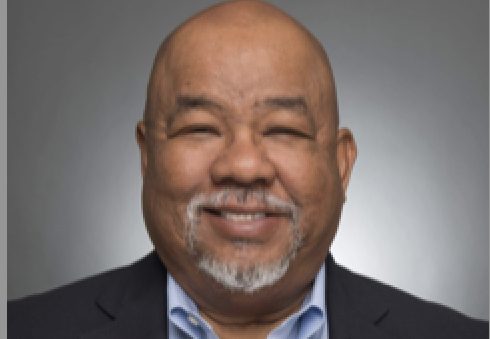
To Los Angeles City Council President Herb Wesson, April 29, 1992 is a day that will forever be cemented in his mind. Serving then as the campaign manager for Yvonne Burke’s successful run for the Los Angeles County Board of Supervisors he remembers the day started out as any other. Various campaign stops throughout the morning followed by time at the campaign office to rally volunteers and meet voters before heading out to more campaign events.
The Rodney King verdicts were read at approximately 3:00 PM. The acquittal of all four officers on trial for the heinous beatings of King, brought outrage to the community whom immediately began protesting the injustice. “I remember being at a previously scheduled campaign event in Lynwood with Supervisor Burke thinking what do we do now?” Wesson said. “Clergymen and ministers had been suggesting leading up to the verdicts that the community should meet at First AME church, which is exactly what we did.” Wesson remembers driving Burke from the campaign, event directly to the church near Western Avenue and Adams Boulevard. What should have only taken twenty or twenty-five minutes to drive instead took almost an hour. “As news of the riots started consuming all of the AM car radio stations we were starting to get a picture of what we were driving into,” Wesson added.
Wesson remembers by the time they arrived to First AME church, there were already over a thousand community members present. As Burke and Wesson made their way into the church, Los Angeles City Mayor Tom Bradley was being rushed out. Bradley was immediately ushered into the vehicle waiting for him outside, but it was by no means a smooth transition. “Angry protestors were shaking his car left and right. You could feel the tension building,” Wesson noted.

Burke spoke to some of those who had gathered inside the church, but was escorted out as the crowd grew. Burke drove home with campaign staff and tasked Wesson with ensuring that then Los Angeles City Councilmembers Nate Holden and Zev Yaroslavsky, who were also on site made it out of the church and back to their respective homes safely. “By then the sounds of horns honking in the street and the smell of fire consumed all of my senses,” Wesson said.
25 years later, Wesson finds himself leading an effort to capture stories like his about a Los Angeles he wishes was further in the past. Last fall with the help of his colleague, Los Angeles City Councilmember Mitch O’Farrell, Wesson launched embRACE LA, a new city initiative aimed at fostering stronger race relations by engaging residents across the city through dialogue and activities.
Wesson is not afraid to draw parallels between the state of Los Angeles in 1992 and today. “Looking back, there was so much pent up racial tension in our city from years of just sweeping concerns under the rug whether between neighbors, colleagues, and even the LAPD. I believe if we would have had a program like embRACE LA then, maybe the uprising wouldn’t have been at the magnitude we all witnessed.”
A recent report by the Los Angeles City Human Relations Commission found hate crimes against African-Americans, Latinos, Jews, and transgender women rose sharply across Los Angeles County, especially around downtown and Los Angeles’ Westside. The report found that half of the nearly 500 crimes reported were racially motivated, with 58 percent of the attacks targeting African-Americans.
With racial tensions escalating both locally and nationally, Wesson wants to ensure he is doing his part to move the city forward. Speaking at a press conference unveiling the embRACE LA initiative, Wesson said, “When you look at the rise of hate crimes in this city, then there is without a doubt a need for us to do something. As a child of the ‘60s, I know what it’s like to turn a community around, a city around, a state around, a country around, and you do that by having an uncomfortable conversation about what is going on.”
Next week, Wesson will open his home to a diverse group of individuals who will not only share their memories of the 1992 civil unrest, but also speak honestly about race and the future of the city. Among the guests include former Los Angeles County Supervisor and Los Angeles City Councilmember Zev Yaroslavsky, former Los Angeles City Ethics Commissioner Erin Pak, and Los Angeles Sentinel Publisher Danny Bakewell. By setting an example, Wesson hopes to encourage others to invite friends and neighbors into their homes to have an open and honest conversation about race. Recognizing it can be an “uncomfortable conversation,” as Wesson likes to point out, the conversation has to be had,” he said.
As the community remembers the 25th anniversary of the 1992 riots, Wesson is also encouraging members of the public to share their stories on social media using #25YearsOn.







